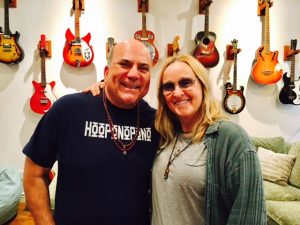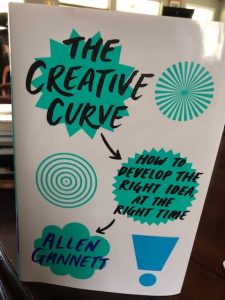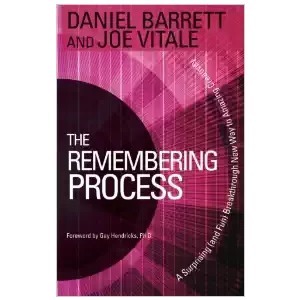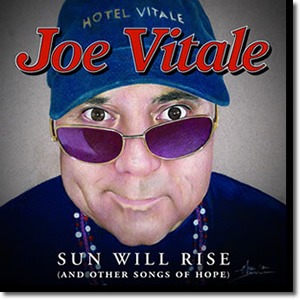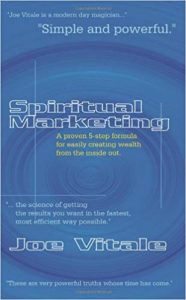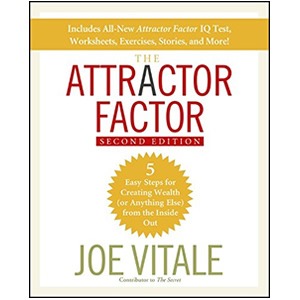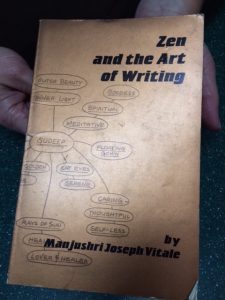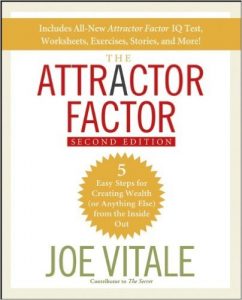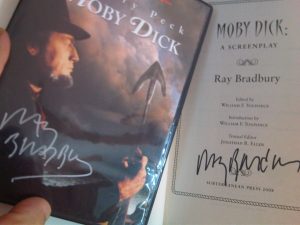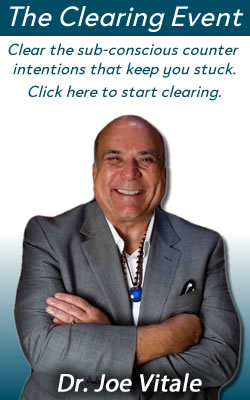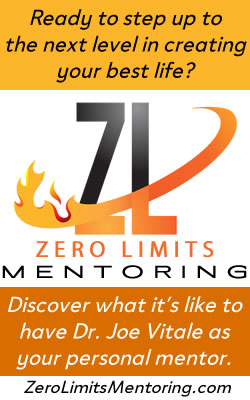Tag: writing
The Shocking Truth About Creativity
I love creativity!
The sudden burst of a creative new idea electrifies me.
It’s an orgasmic rush to feel the birth of a new book, or song, or product, or online course.
I love it!
But there are a lot of misconceptions about creativity and being creative.
For one, most people sit around and wait for inspiration to wallop them over the head with an idea.
And they expect the idea to be fully developed and ready for release to the public.
But is that how it actually happens?
When I had my private songwriting lesson in the home of rock icon Melissa Etheridge, she advised, “Never write without being inspired.”
But how do you get inspired?
She went on to explain how she gets inspired.
She walks in nature, reads biographies, reviews songs and poems, and more.
In other words, she invites inspiration.
Jack London was more macho about it.
He said, “You can’t wait for inspiration. You have to go after it with a club.”
Considering he wrote over 50 books, and some (White Fang, The Call of the Wild, Martin Eden) are considered classics of literature, he knew what to do to nail creativity.
I’m a fan of inviting creativity, too.
I read, listen to music, allow my mind to reflect, sit in the hot tub and look at the stars, meditate and more
But here’s the thing no one seems to get.
Receiving creativity is one thing; developing what you receive is another.
For example, I was reading the new book The Creative Curve by Allan Gannett and began to get the idea of writing this post.
My mind was “ignited with an idea” and I let it float through my mind.
But then I went here and started explaining my idea.
I started writing.
And rewriting.
In other words, the sudden inspiration for an idea is a birth; but you have to grow and develop the idea into something that you can share.
Melissa Etheridge also told me that after I got an idea for a song, I “get” to develop it with music, melody and more.
She stressed the word “get.”
Some people complain that they have an idea for a book or a business, but now have to do the work to bring it into being.
You don’t “have” to do it, you “get” to do it.
It’s a shift in perspective.
With this very blog post, I’ll probably rewrite it fifteen times, or more.
Why?
Because receiving an idea and developing an idea are two different things.
For example, according to Gannett’s book, Paul McCarthy worked on his famous song “Yesterday” for almost two years. (!)
He didn’t just receive inspiration and release a song.
He wrote. Rewrote. Wondered.
Pondered. Worried. Stressed.
And worked some more.
The result is considered a masterpiece.
But it didn’t arrive in his mind as complete and finished.
All he received was the seed.
According to Gannett, “McCartney became obsessed. While he worked on it, the people around McCartney became sick of hearing about his ever-changing song in progress.”
After twenty months of this process, he created what we all know and love as the famous song, “Yesterday.”
Mozart didn’t receive finished music, either.
That’s another fallacy.
He got flashes of ideas and then worked at the keyboard to grind out what worked and didn’t.
I remember reading that the late Leonard Cohen often worked on a single song for ten years.
The shocking truth about creativity is that getting an idea is simple birth; you still have to raise it, much like making a baby is a thrilling explosion of delight, but now you have to change the diapers, feed it, raise it, and send it to school.
If you really want to be creative, you have to invite inspiration, and then go to work.
Take the seed and grow it.
When Daniel Barrett and I wrote the book, The Remembering Process, we wanted to share a new way to invite creative expression and creativity.
But after you receive a vision, or an inkling of what to do, you still have to develop it.
The creative idea isn’t the end.
The creative idea is the beginning.
And that’s where you “get” to be the parent of creativity.
For example, when I stated an intention to create the album, Sun Will Rise, I had to use everything to receive the ideas for each song.
But then I also had to write and rewrite those songs.
And then I had to get my Band of Legends together and record those songs.
And then we had to tweak and improve those songs in the studio.
And then we mixed them, and mastered them.
I didn’t just “get an idea” and quit.
This is the shocking truth about creativity.
Let me give you a maybe more startling example:
Back in 1997 or so I wrote a little booklet called Spiritual Marketing. I wrote it for my sister. I got the idea that maybe I could help her by explaining a process I had learned that took me from homeless to wealth. The little booklet explained a five step formula for attracting wealth. I never promoted it, and I kept it secret; only handing it out among friends and people I met and trusted. One of those friends was Bob Proctor, who convinced me this little booklet was a gem.
I could have stopped there.
A new print-on-demand publisher approached me around 2002 and asked if they could print something of mine. I gave them Spiritual Marketing. But before I did, I rewrote it, expanded it, added more content to it, and developed it into a more mainstream full length book. That book became an Amazon bestseller and was mentioned in a New York Times article.
And I could have stopped there.
Then, around 2005, a major publisher approached me about publishing Spiritual Marketing. But they didn’t like the title. So I changed the title, rewrote the book, added even more content to it, and released it as The Attractor Factor. It was that very book that got me invited to be in what became the hit movie The Secret.
But this evolution of an idea didn’t stop there.
The publisher loved the book but wanted to print a newer, expanded, more workbook oriented edition of it. So I again added to the book, enriched it, added quizzes and worksheets, and saw it published in 2008. That book is still a bestseller today.
Do you see how this process works?
I didn’t receive an idea and stop.
I received it, developed it, and kept developing it.
What I keep preaching is that life is a co-creation.
It’s a dance of energy.
You receive an idea or inspiration.
But it will just sit there unless you take action to breathe it into being.
I’m told I’ve written over 75 books.
I’m told I’ve recorded over 15 albums.
They all began as ideas from being creative, from allowing creativity; but none of them would be available had I take not taken action to create and manifest them.
So, how do you be more creative?
How do you practice creativity?
By inviting inspiration.
And by acting on that inspiration.
Now go forth and blossom.
You have work you “get” to do.
Go do it.
Ao Akua
joe
PS — Enjoy!
The Prosperity Factor
My first book was published in 1984.
It was called Zen and the Art of Writing.
It contained methods for increasing creativity, from NLP to meditation to Focusing to improv, all tools I had studied along the way in developing myself as a writer.
It was cause for celebration as I had struggled my entire adult life to get published, through homelessness and poverty, and a lot of desperate days and nights.
Well, I was finally published.
But ultimately that led to disappointment.
Because I didn’t have a name, or a following, or a marketing formula, or a very good publisher, the book was a dud.
I didn’t receive a dime from the book.
Ever.
No advance.
No royalties.
Nothing.
I was left to continue my struggle.
It would be almost ten more years (!) before I had a book published that did anything for me.
In 1992 I released The Seven Lost Secrets of Success and got a taste of what it’s like to be a rising star as an author.
I discovered that a book is an advertisement for my services.
People would read it and want to do business with me.
I never received an advance for the book, though.
But being the author of it brought me opportunities.
I was invited to speak at events, go on radio shows, get hired to write sales letters and ads, and more.
The book brought me business.
But it would get even better.
In 1994 I wrote The AMA Complete Guide to Small Business Advertising for the American Management Association.
I received a small advance – finally – for that book.
At first I was disappointed at such a low amount.
But after decades of trying to get published and finally receiving an advance, even a small one, I was grateful.
And that book changed my life.
Complete strangers and large companies hired me without meeting me, all because I was the author of an important book.
I’m talking known entities like The Red Cross, as well as movers and shakers such as politicians, lawyers, authors, speakers, celebrities, oil magnates, millionaires and billionaires, CEOs and more.
All I had to do was answer the phone.
And by then I had a bit of a local name as a copywriter, had my own small database of fans, and was with a publisher that at least knew a little about marketing.
I was able to leverage my books into attracting more money.
Being an author made me an author-ity.
That was a turning point in my career.
That experience of being published and being seen as the authority happened repeatedly, and kept growing, as I kept writing, publishing, and marketing.
In 1996 I wrote one of the pioneering books on how to make money online.
It was titled Cyber Writing and it, too, brought me more business as a copywriter, even though the book itself brought me almost nothing in terms of royalties.
And because the Internet was now available to the masses, my audience became the entire world.
Of course, releasing Hypnotic Writing (thanks to Mark Joyner’s persistent encouragement) as my first e-book (and later selling it to a major publisher) did wonders in establishing me as the copywriter to hire.
I became an Internet celebrity.
I could list more publishing milestones, both audio and print, but you get the idea.
Obviously, being an author gives a credibility that is bankable.
But the best was yet to come.
In 2006 I was invited to appear in what became the hit movie The Secret — invited because of one of my books (The Attractor Factor) — and I ended up in the New York Times best-selling book, The Secret, too.
And while I wasn’t paid to be in the book (or the movie), being included in such historic wonders brought global attention to me and elevated my career into outer space.
Being a contributing author in such a mega-bestseller brought me even bigger and better opportunities, even when neither the book or movie brought me anything directly financially.
I’m now an acknowledged success.
The offers and opportunities keep rolling in.
It’s a sweet life.
But it sure didn’t happen overnight.
What I’m offering you today is a way to have “overnight” success – and save yourself all the hassle and disappointment I went through – by being a coauthor in my next bestselling book, what I’m calling “The Prosperity Factor.”
A few people want to know why there’s an investment to participate.
Easy answer:
Because you’re paying to skyrocket your career in one strategic move.
You can play the game and try to get published on your own.
I did that.
It took me DECADES.
Literally.
And even if and when you get published on your own, you still need to promote your book.
If you don’t have a built in audience, or a reputation, or a list, or a plan, good luck.
I tried that, too.
Took me years.
What I’m offering you is a one time chance to explode on the scene – riding on my name and fame, benefiting from my database and strategy, and guaranteed to be a bestselling author almost overnight.
I have a team in place to help you.
I have the printer and the contacts.
They all need paid.
Your investment is an investment to leap over the desperate masses and shine as a bestselling author – now, not decades from now.
It’s an investment in yourself.
Believe me, if I could have done this in my struggle years, and hitched my wagon to a star, and had success as an author almost instantly, I would have grabbed it.
It would have saved me years to decades of waiting, praying, trying, hoping and struggling.
If you see the value of being in and on the cover of my next bestseller, and advancing your career in one smart move, then go to http://www.instantbestsellingauthor.com
This is your chance.
Seize it.
Ao Akua,
PS – Keep in mind that a lot of people will want to be in this book, and space is obviously limited, so if you are sincerely interested in advancing your career in one strategic smart move, then please zip over to http://www.instantbestsellingauthor.com right now. This is your moment. Grab it. Why not do it right now, while it’s on your mind?
The Ahab Syndrome
Recently I caught the classic 1956 movie, Moby Dick, based on the famous book by Herman Melville, starring Gregory Peck, directed by John Huston, screenplay by Ray Bradbury. I was reminded of how hypnotic and meaningful the movie is, with symbols about Divinity and messages about the Law of Attraction, and more. I loved it. Always have.
You probably know the Melville book is an American classic first published in 1851. You probably also never read it. At least not all of it. Even Ray Bradbury admitted he could never get through the thing.
I have read it. I’m a fan of the book. I read everything by Melville when I was in college in the 1970s, including Billy Budd, Typee, and The Confidence Man, and even his overlooked poetry, such as Clarel.
But I wouldn’t read Moby Dick today.
Instead, I’d watch the 1956 movie.
Here’s why:
Moby Dick is actually a story about the war between ego and, well, let’s say it: God. Captain Ahab is out to kill God. Yes, the great white whale is a symbol. But everything in life is. In this case, the whale represents the Divine. And Ahab wants it on a stick. Or at least a harpoon.
As Pip says in the movie, “That ain’t no whale; that a great white god.”
But why does Ahab hate God/Whale?
The movie cuts to the chase and tells the story best. Ahab went fishing one day, ran into God in the appearance of a huge white whale, and God/whale challenged him. Ahab lost a leg. Got a facial scar. And was royally upset. He devoted the rest of his life to revenge. Of course, trying to blame God for your life is a losing battle. After all, God’s in control, not you.
And this is Ahab’s problem.
Ahab thinks he can find and destroy God/whale. He bribes his crew with a Spanish gold coin to find the whale. He uses maps and math to help pinpoint the next appearance of the great white.
Along the way Ahab ignores another ship in need of help. Ignores his crew who needs to work. Ignores Starbuck, his first in command, trying to warn him of his choices. And ignores his own mission: to hunt for whales so the world has light from burning their fat.
Listen as Ahab declares how he would “strike out the sun” if it insulted him:
“Speak not to me of blasphemy, man; I’d strike the sun if it insulted me. Look ye, Starbuck, all visible objects are but as pasteboard masks. Some inscrutable yet reasoning thing puts forth the molding of their features. The white whale tasks me; he heaps me. Yet he is but a mask. ‘Tis the thing behind the mask I chiefly hate; the malignant thing that has plagued mankind since time began; the thing that maws and mutilates our race, not killing us outright but letting us live on, with half a heart and half a lung.”
Ahab is pure ego.
He’s hypnotic, as most madmen are.
He’s obsessed, as most madmen are.
And he’s going to fail, as most hypnotic, obsessed, madmen do.
He’s not going to be able to kill “the thing behind the mask” because that thing is God/Divine/Life.
How do we know Ahab failed?
The only reason we know of the story at all is that there was a lone survivor. Ishmael, played by actor Richard Basehart in the movie, is a detached observer. He’s a witness. He’s a reporter of the event. He lives to report the lesson back to us.
Why?
Because you and I need reminded that there is God and there is our ego. When you battle God/Divine/Life/Whale, you lose.
Here’s the lesson as I see it (with apologies to Melville, Bradbury, et al): Accept what happens to you in life as a gift, learn from it, turn it around if need be, and then get on with your life mission.
Feeling resentful, angry, unforgiving and driven by revenge is only going to do one thing: sink your ship.
The secret to living a happy life is to go with the flow. That doesn’t mean roll over and play dead. Put up your sails to use the God-given winds to get you where you want to go, but don’t blame God/Divine/Whale when you hit any bumps in the road. You attracted them as an unconscious dance of energies with life. Just adjust your sails and get back on track. Life goes on.
Beware The Ahab Syndrome.
It’s self-sabotage at the extreme.
What whale have you been fighting, anyway?
Ao Akua,
PS — Here’s sci-fi legend Ray Bradbury giving a misleading (it wasn’t as easy as he claims in this clip) but fun account of how he wrote the screenplay to Moby Dick for egocentric director John Huston by becoming author Herman Melville:

